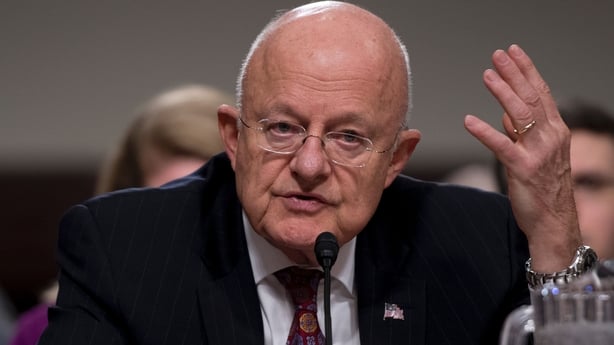The White House has asked the US Congress to examine whether the Obama administration abused its investigative authority during the 2016 campaign, as part of the ongoing congressional investigation into Russia's influence on the election.
The request came a day after US President Donald Trump alleged, without supporting evidence, that then-President Barack Obama ordered a wiretap of the phones at Trump's campaign headquarters in Trump Tower in New York.
White House spokesman Sean Spicer said Mr Trump and administration officials would have no further comment on the issue until Congress has completed its probe, potentially heading off attempts to get Mr Trump to explain his accusations.
"Reports concerning potentially politically motivated investigations immediately ahead of the 2016 election are very troubling," Mr Spicer said in a statement.
"There was no such wiretap activity mounted against the president-elect at the time, or as a candidate or against his campaign," former Director of National Intelligence James Clapper (below), who left the office at the end of Mr Obama's term, said on NBC's Meet the Press.

Mr Trump made the wiretapping accusation in a series of early morning tweets yesterday amid expanding scrutiny of his campaign's ties to Russia.
An Obama spokesman denied the charge, saying it was "a cardinal rule" that no White House official interfered with independent Justice Department investigations.
Under US law, a federal court would have to have found probable cause that the target of the surveillance is an "agent of a foreign power" in order to approve a warrant authorising electronic surveillance of Trump Tower.
Meanwhile Mr Trump is expected to sign a revised travel ban, just over a month after his original decree sowed controversy across the United States and chaos at airports.
The president will sign the new executive order at the Department of Homeland Security, according to Politico, which cited senior government officials.
However it was unclear what changes Mr Trump planned to make, according to the publication.
The President's original 27 January order was widely criticized as amounting to a ban on Muslims, and also for being rolled out sloppily with virtually no warning to the public or preparation of the agencies tasked with enforcing it.
The order, which temporarily barred people from seven Muslim-majority countries from travelling to the United States for 90 days, as well as all refugees for 120 days and Syrian refugees permanently, triggered worldwide outrage as well as protests in the United States.
It also caused chaos in the first days of its implementation as people arriving at US airports from targetted countries were detained and sometimes sent back to where they came from.
However, the order was halted after two judicial setbacks.
There was a nationwide freeze on President Trump's ban by a US district judge in Seattle and a subsequent ruling by San Francisco's Ninth Circuit Court of Appeals upholding the suspension.

